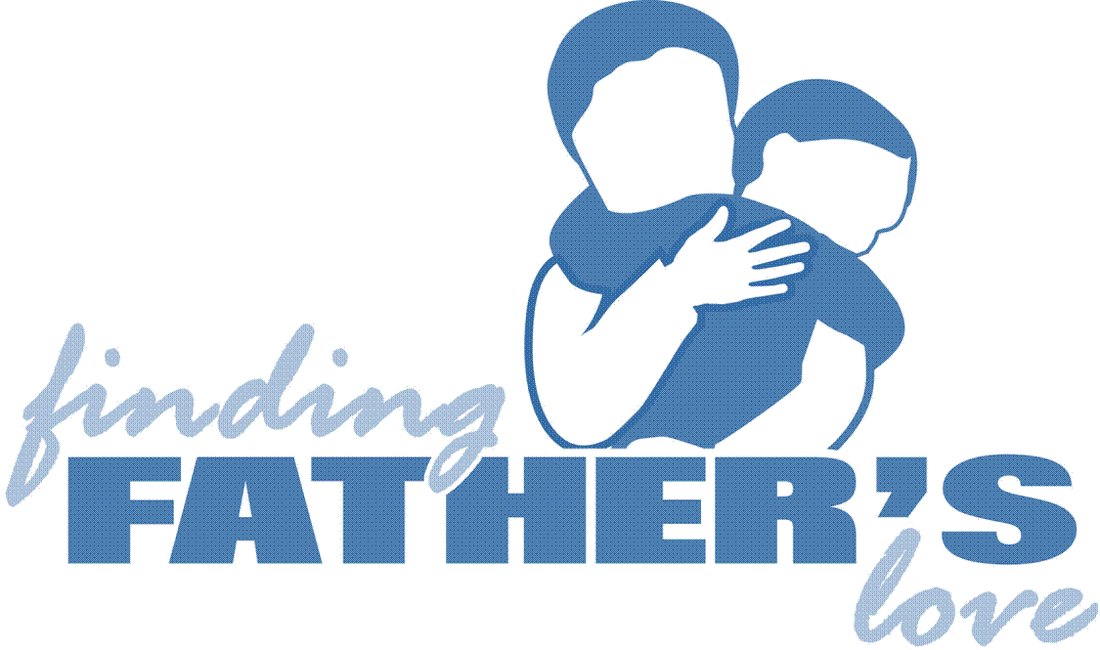|
Our Heavenly Father’s deepest desire is to be in close relationship with His kids; a closeness characterized by genuineness and honesty.
Adam and Eve had that kind of relationship with God. They were completely open, completely free. There were no barriers or boundaries. They had absolutely nothing to hide. They were naked and unashamed (Gen. 2:25, NKJV). But all that changed the moment Adam and Eve tasted that apple. They sinned against God, covered themselves up, and hid. And humankind has been doing the same ever since. We sin, then in our shame we try to hide from God and others. We hide behind the masks of status, success, acquisitions, accomplishments. We hide because of fear. We're afraid that if the truth about us were known, we would be rejected. Our fear propels us to project an image that isn’t true. Our fear persuades us that it’s safer to be dishonest. And, ultimately, our fear prevents us from experiencing the kind of closeness in our relationships that our Creator desires us to have. When He walked this earth, the topic Jesus addressed more than any other was not love, it was not obedience, it was not forgiveness. It was fear. Why? Because God knew how prevalent and pervasive fear would be in the lives of His children. And amidst all of His pleas to us throughout the Bible--fear not, don't be anxious, be strong, don't worry--God, in His profound mercy, actually gives us the antidote to fear; the one thing that will stop fear dead it its tracks: There is no fear in love. But perfect love drives out fear, because fear has to do with punishment. The one who fears is not made perfect in love (I Jn. 4:18, NIV). God's answer to fear: His perfect love. So what is perfect love?
That is how our Father in Heaven loves us. The word dis-cover literally means the opposite of covering. We will dis-cover the fear-less intimacy that our Heavenly Father desires in our relationship with Him and others once we experience the depth of His perfect love. When Adam tried to cover up His sin and hide from God, the Bible tells us that God came looking for him and called out, Where are you? (Gen. 3:9, NIV) Think about that. Why would an all-seeing, all-knowing God ask, where are you? God not only knew which shrub Adam was crouching behind but how many leaves that clung to it. Truth is, God didn’t ask, where are you? because He needed to know where Adam was. God asked because Adam needed to know where Adam was. Adam needed to admit not only that he had sinned, but that he was hiding because of it. He needed to own his fear. So where are you? Have you gone into hiding because of your sin? Are you covering up the real you because you are afraid you will be rejected if the truth were exposed? Are you projecting an image that is not real? It is God’s desire that we take off our masks. That we shed our fig leaves and come out of hiding. It is when we come before Him in complete genuineness and honesty that His perfect love begins to flow. And in that perfect love we find freedom from all our faults, our failures, and our fears. Is there a risk to exposing the truth about us? Absolutely. But there is an even greater risk in continuing to hide. The truth is, we cannot truly love or be loved as long as we are wearing a mask. Feel the weight of that truth. We cannot truly love or be loved as long as we are wearing a mask. David, the one God called “a man after my own heart,” knew all to well not just the pain of his sin but the pain of hiding his sin. He wrote, When I kept quiet about my sin, my bones wasted away from crying all day long. For day and night Your hand was heavy upon me. My strength was dried up as in the hot summer. So David faced his fear of rejection and exposed himself. He continued, I told my sin to You. I did not hide my wrong-doing. I said, “I will tell my sins to the Lord.” And You forgave the guilt of my sin. David then challenges all believers to open themselves up, as He did, to God's perfect love: So let all who are God-like pray to You while You may be found, because in the floods of much water, they will not touch him. You are my hiding place. You keep me safe from trouble. All around me are your songs of being made free (Ps. 32:3–5). We cannot out-sin God's grace. But we can cheat ourselves out of it--by not telling the truth. And what will be the result of our honesty? God, in His perfect love, will meet us in the depth of our sin and offer us His grace from a supply that will never run out. To have the kind of relationships God desires us to have we must get real--with Him, with others, and with ourselves. We must not simply acknowledge our sin, but the fear that all too often sends us into hiding. Every one of us has fears. Some of us are just afraid to admit it. It could be a physical fear, like the fear of heights, snakes, or spiders. It could be a psychological fear, like the fear of failure, rejection, or intimacy. But, if we're honest, we all encounter things in our lives that cause our muscles to tense and our pulse to go into overdrive.
Fears can induce all kinds of uncomfortable responses--physical, psychological, mental, and emotional. But there is one fear in particular that has a devastating effect on us spiritually. It is a fear that can scar our very souls. I'm speaking of the fear of abandonment. God has created us as relational beings. Each of us has an innate desire to belong, particularly to the ones who gave us life. From the moment we take our first breath, our spirits begin aching for a parental connection. And without minimizing the effect of a mother on the life of a child, there is a void in our souls that only a father can fill. That is especially problematic in our culture today where fatherlessness has reached epidemic proportions. A recent US Census Bureau report paints the grim picture: Over one-third (33.5 percent) of children in America are, for various reason, living absent from their biological father. In the African American community, 67 percent of children live in fatherless homes. But whether a father’s absence is due to death, divorce, or disassociation, the result is always the same—children who have an empty space in their lives where a father's love is supposed to be. Magnifying the problem even more is the fact that death, divorce, and desertion are not the only ways fathers abandon their children. Many children have been abandoned by fathers who are physically present in the home but who are absent emotionally. Children have been abandoned by dads who may be in the next room, but who drink too much, who work too much, or who simply have no clue how to be a dad. Sometimes a dad's occupation takes him away from his kids. Sometimes his preoccupation does. These kids aren’t included in the 33.5 percent of those living without their biological father. But their reality is the same. They, too, need the love and affection of a dad. The harsh reality is, some of us will never experience a close relationship with our earthly fathers. But that does not mean our Father void can never be filled. All of us can experience in our lives the active and loving presence of our Father in Heaven. Believing and experiencing the presence of a Heavenly Father can heal our father wound--if we open ourselves to Him. Psalm 103 tells us that The LORD is like a father to his children (Psalm 103:13, NLT). Granted, to those whose fathers have left them those words are about as uplifting as wearing floaties in a tsunami. But David, the author of that particular psalm, wrote those words in a “best case scenario” context. The ideal father, David says, is filled with “tenderness and compassion” for his children. In Psalm 27 David paints a vivid picture of the attributes of our Heavenly Father. Throughout this chapter he acknowledges God as our Light, our Salvation, our Fortress, our Protector, and our Helper. These names remind us that we need never feel afraid when our Heavenly Father is around. But in verse 10 he speaks directly to those who are prone to such fears because an absent earthly father. He writes, Even if my father and mother abandon me, the LORD will hold me close (NLT). It’s a promise from a Father who has never broken one yet: No matter what your experience with your earthly father, I will hold you close. Don't continue to run on empty because of father neglect. Stop living with the fear of abandonment because you were deprived by your dad. You have a Father who wants nothing more than to have a loving and close with His kids. He longs to fill the hole in your soul with His abiding presence, His soothing peace, and His limitless love. We have all, at one time or another, stood shaking on the shores of hopelessness.
Centuries ago, the Israelites found themselves in a seemingly hopeless predicament. After being released from captivity in Egypt they thought they were home free, in the literal sense. God had promised them a new place to live--a land described in the book of Exodus as a good and spacious land, a land flowing with milk and honey. That metaphor suggests a place of pure enjoyment, a vibrant and fertile land. The Hebrew word used for flowing comes from a verb which is best translated, to gush. After years of gut-wrenching hardship, the people of Israel were looking forward to a life of joy and blessing, with God's goodness gushing all over them. But those dreams were dashed the instant they heard the muffled sounds of galloping horses in the distance. Pharoah had rethought his decision to let God's people go and his mighty army was now in hot pursuit. There was no conceivable way the people of Israel could escape their predicament. They were unarmed. They were on foot. They couldn't outrun Egypt's finest chariots. And cementing the hopelessness of the situation was that there before them, stretched out as far as they could see, was the Red Sea. They had nowhere to turn--except to God. And God, as He is want to do when His kids are in trouble, answered their pleas. And His response was not,
Take note of God's reply to His people found in Exodus 14. He encouraged,
An important detail in this story is that Israel's predicament was not the result of bad choices. The Israelites were not in this quandary because they didn't follow God, but because they did. So why would God put His beloved children in such a quandary? It was so that He could show them His glory. He longs to do the same with you and me. He invites us to call on Him in times of trouble. He encourages us to stand firm. To not be afraid. To remember that there is nothing that God and us together can't handle. Sometimes the best thing we can do when we find ourselves overwhelmed by life's circumstances is to simply be still. For in the stillness of our souls we will find that we have no reason to fear. God is with us. The battles we face aren't even ours, they're His. He has a handle on any and every situation we may face. With God in control, there is no such thing as a hopeless situation. A young mother of three has her deepest fear confirmed--the lump in her breast is malignant.
A man who strives to give the appearance of being a model husband and father is, in actuality, living a secret life of sexual impropriety. A woman struggles for decades with the deep-seated belief that her depression is a result of her not being spiritual enough. A couple continually blames themselves that their grown son has turned his back on them and God and is in a downward spiral toward self-destruction. While their circumstances are vastly different, all are really yearning for the same thing—peace of mind and heart. Truth be told, we all desire such peace. We live in a world that is desperate for peace. We want peace in the Middle East. We want peace in our inner cities. We want peace in our families, in our churches, in our places of employment. And in our quest for peace we often find ourselves turning to government leaders, police departments, therapists, or self-help books. Yet peace continues to elude us. Perhaps we're not finding it because we're looking in the wrong places. But it could also be that "peace" is missing from our lives because we don't know exactly what it is we're looking for. Many in our world believe that peace means being free of adversity. And, unfortunately, there are some who expound that this problem-free existence can be ours if we would but give our lives to Jesus. That belief is unfortunate because it is not biblical. Scripture does not record a single instance in which Jesus promises that those who follow Him will live happily ever after. In reality, He guarantees just the opposite. Jesus’ promise to His followers? Here on earth you will have many trials and sorrows. (Jn. 16:33, NLT) God never tells His children that He will take our problems away. He promises to do something infinitely more meaningful: He offers to exchange our pain for His peace. Long before Jesus was born the prophet Isaiah foretold that the Savior God would one day send to the world would be known as the Prince of Peace. The Hebrew word for peace is shalom. It is often used in the Bible to refer to calm and tranquility in individuals, groups, and nations. But a deeper, more intensely personal meaning of peace is the spiritual harmony brought about by an individual’s restoration with God. That is the peace Jesus speaks of in John 14 when He informs His followers, I am leaving you with a gift—peace of mind and heart. Not just peace. But peace of mind and heart. Peace that makes us one with the Prince of Peace. The peace Jesus offers consumes our minds. It is the unmistakable result of an unwavering belief that God is good even when our circumstances are not; that He truly wants the best for us even when it seems things couldn’t get any worse. It is this kind of peace that allows us to trust God when we can’t for the life of us understand Him. Jesus’ peace also permeates our hearts. We can feel it. We can sense that it is there even in situations that make no sense. It's presence is deep and abiding. It defies logic. It is heartfelt assurance that allows us to experience tranquility in our trials, serenity in our storms. In the text from John 14, Jesus goes on to make a distinction between the peace He offers and the peace the world gives. He emphasizes that His peace is out of this world. The peace of Jesus is starkly different from the peace the world provides. It is not temporary. It won’t wear off by morning. It will never expire. It is a peace that assures us that even in the darkest days His love for us remains. A peace that gently reminds us that we are never alone, that He is always by our side. A peace that points us to heaven, where believers will finally experience the problem-free existence that eludes us on earth. This is the kind of peace we all crave. And it can only be found in one place. Hail the heaven born Prince of Peace! Hail the Sun of Righteousness! Light and life to all He brings, Risen with healing in His wings. It was only eight days into our marriage, while on a day trip to Knotts Berry Farm, that I discovered my wife and I were incompatible: I love roller coasters, Jan detests them. If she was given the choice between riding Montezooma’s Revenge and having Montezuma’s Revenge, most of our communication would take place through the bathroom door.
So in the interest of marital harmony, I took my new wife to check out all the attractions that did not include the words thrilling or death-defying in their brochure description. With Safety First as our (her) motto, we chose to venture into one of those optical illusion houses that was built in the side of a fake mountain. To demonstrate the illusion that the floor was level when, in actuality, it was constructed on an angle, our tour guide asked for a volunteer. He looked past all the children who were eagerly waving their hands and chose Jan, who would never volunteer to do anything that would place her even near a spotlight. She tried to beg off but the guide assured her that her assignment would be painless. He said, “All I want you to do is walk across the room and sit on this chair next to me.” That sounded easy enough. But as Jan took her first step she realized the severity of the angle on which the floor was built. To a chorus of snickers, she trudged across the room looking like she was climbing up the down escalator wearing Herman Munster’s shoes. When she finally made it safely to the chair, the guide, who seemed to relish in my wife’s disdain over being his visual aid, asked her name. “Jan,” she said, although clearly wishing to remain anonymous. Then he asked, “Where ya from?” She answered, “Indiana.” “So what brings you to California?” he asked. Jan replied, “We’re on our honeymoon.” The guide’s comeback was instantaneous: “No wonder you’re walking like that!” This incident may have happened in an amusement park, but my wife was far from amused. I, on the other hand, was nodding as I looked around the room, saying in my head, “That’s right.” When I think back on that scene and picture my bride dragging along, struggling to take the next step, it makes me think of how many of us go through life with a similar gait. We plod along, fighting the forces that would hold us down, praying that we can muster the strength to keep moving onward and upward. People today are weary. Week after week, day after day, we drag ourselves from one activity to the next, lugging burdens we don’t even realize we’re carrying, striving to reach goals we can’t even identify. Even those who claim to walk in the transforming power of Christ seem to be schlepping along, weighed down all too easily by the worries of the world. And our Creator grieves. This is not His plan for our lives. His desire is that we strip off every weight that slows us down (Heb. 12:1)—our fears, our doubts, our past, our pride, our self-reliance, our insecurities—so that we can not only walk and not be weary, but that we will actually soar like eagles (Isa. 40:31). As believers in an omnipotent and trustworthy God, we are not to settle for being ordinary, we are extraordinary; we haven’t just been given life, but abundant life; we are not meant to simply survive, but to thrive; our glass is not merely half-full, but full to overflowing. Ours is a God who, despite what the enemy may use to weigh us down, not only has the ability to do anything we ask, He is able to do exceeding abundantly above all that we could ask or imagine. For us to live life to the fullest we must identify, then strip off the things that weigh us down. We must give our burdens to the Burden-bearer. Why keep plodding through life when we were created to soar? (This is an excerpt from my next book, Free to Soar.)  When God says, "You can do it," fear whispers, No, you can’t." When God says, "I will give you strength," fear whispers, "God’s not even there." When God says, "Take a step of faith," fear whispers, "Run away." Whenever we hear the voice of fear, we can be certain it does not belong to God. For God has not given us a spirit of fear, but of power and of love and of a sound mind (2 Tim. 1:10, NKJV). A sound mind is a disciplined mind; a mind that is focused solely on God and His truth. A sound mind is not distracted by worry and fear. A sound mind is firmly convinced that God is worthy of our trust no matter what circumstances we may face. God is not honored by shaky knees and sweaty palms. When we walk in His strength, we can boldly face the challenges of life with the tools He has given us: power, love, and a sound mind.  Fear says, "You're on your own." God says, "I wouldn't think of leaving you." Fear says, "You can't do anything." God says, "With my help, you can do all things." Fear says, "You have no purpose." God says, "I have a specific plan that only you can accomplish." Fear says, "God has given up on you." God says, "I've made an enormous investment in you. I will never stop pursuing you." Fear says, "Give up. Your situation is hopeless." God says, "I am the Hope of the world." Fear says, "No one would love you if they really knew you." God says, "There's nothing you could do that would make me stop loving you." Overcoming our fears is a matter of listening to the right voice. |
Free eBook!Join My Mailing List For Email Marketing you can trust. Sign up above to receive my blog posts via email and get a free copy of my ebook, 5 Steps Toward Trusting God.
Privacy Guarantee: Your email will not be shared with anyone else.
Archives
March 2019
Categories
All
Helpful Sites |









 RSS Feed
RSS Feed